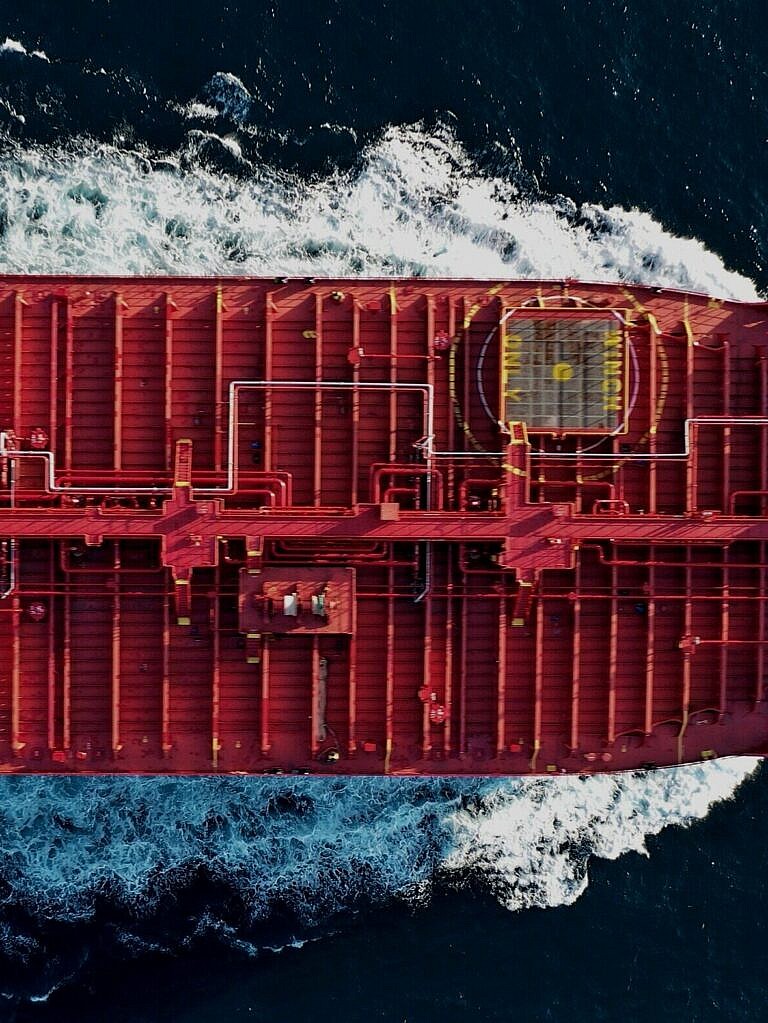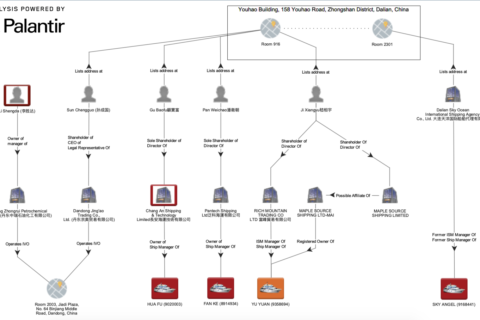Staying Afloat

C4ADS collaborated with IBI Consultants to produce a comprehensive analysis of maritime shipping activity in Venezuelan waters since the U.S. Department of Treasury’s Office of Foreign Assets Control (OFAC) designated PDVSA under Executive Order 13850 in January 2019.
Executive Summary #
Venezuela’s oil revenues are falling against a backdrop of grand corruption that has further impoverished Venezuela. At the same time, Venezuela relies heavily on maritime transport to move its oil to market, rendering state-owned oil company Petróleos de Venezuela, S.A. (PDVSA) vulnerable to sanctions.
To investigate this link, C4ADS collaborated with IBI Consultants to produce a comprehensive analysis of maritime shipping activity in Venezuelan waters since the U.S. Department of Treasury’s Office of Foreign Assets Control (OFAC) designated PDVSA under Executive Order 13850 in January 2019.
In the report, we find three key trends in the year after the designation of PDVSA:
First, port calls in the Venezuelan EEZ decreased by 46 percent, but dark voyages only decreased by two percent.
Second, China, India and Cuba became top destinations for tanker vessels leaving Venezuelan ports.
Third, while many shipping companies withdrew from Venezuelan oil exports, others entered or increased their involvement in the Venezuelan oil sector.
Finally, we illustrate the types of countermeasures and adaptations undertaken by networks supporting the Maduro regime in response to U.S. sanctions. In so doing, we draw insights which can more broadly apply to other sanctions regimes, especially those with a prominent maritime element.
Interactive map of tanker vessel port calls to Venezuela, before and after U.S. Sanctions on PDVSA. Hover over each bar to see the number of port calls made. In the period before U.S. sanctions, we refer to the period of study from January 28, 2018 through January 27, 2019. The period after U.S. sanctions refers to the period of study from January 28, 2019 through January 28, 2020.
C4ADS’s analysis of the effects of sanctions on the Venezuelan oil transport sector reveals trends in the overall level of shipping activity, the apparent destinations of Venezuelan exports, and the intermediary logisticians that transport oil and petroleum products to and from Venezuela. These findings can inform U.S. and foreign enforcement bodies, industry stakeholders including maritime insurers, and civil society monitors seeking to better understand or investigate Venezuelan oil exports and maritime activity in a global sanctions evasion context.






